International Day of Peace | Chinese and Foreign Youths Sing for Peace, Sow Seeds for the Future at the Memorial Hall
Today is the International Day of Peace, and the memorial hall is hosting the "Sing for Peace, Sow the Future" event in the Peace Park. Over 130 Chinese and international youths from 11 countries gathered here to sing for peace, plant Zijin Grass seeds, reflect on history, and discuss peace.
Using Music as a Bond to Gather Resonant Strength
In the Peace Park of the memorial hall, the image of the Goddess of Peace jumps out at you, holding a child in one hand and a dove of peace in the other, symbolizing the continuous transmission of hope and dreams.
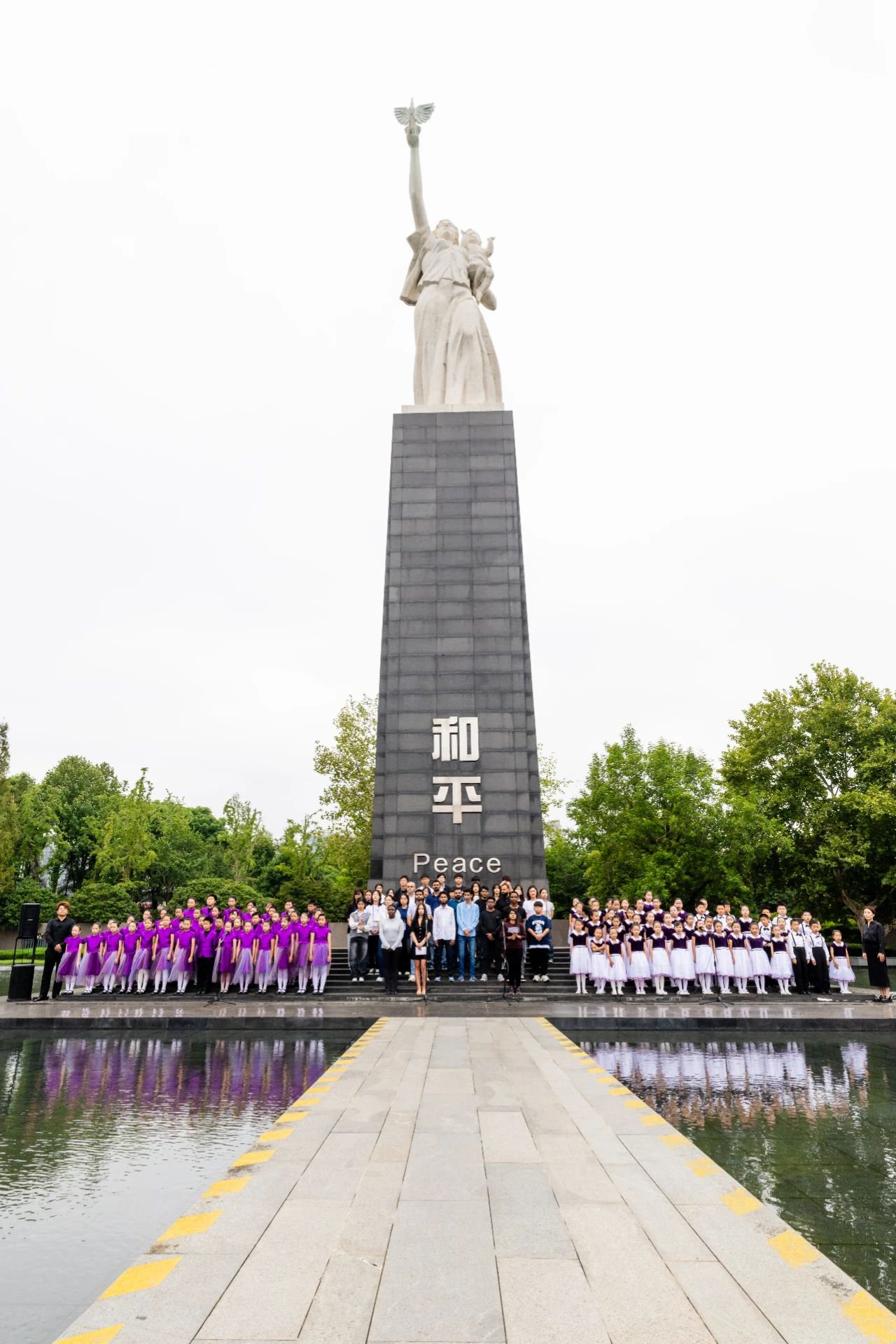
"Zijin grass always grows towards the sun, the radiant sun. Zijin grass always grows towards the sun, the direction of national rise......" On the open space in front of the Statue of the Goddess of Peace, more than 60 children from the Nanjing Zijin Grass Choir sang the original songs “Zijin Grass Growing Towards the Sun” and “Fava Bean Song”, visitors at the scene were deeply moved by them.
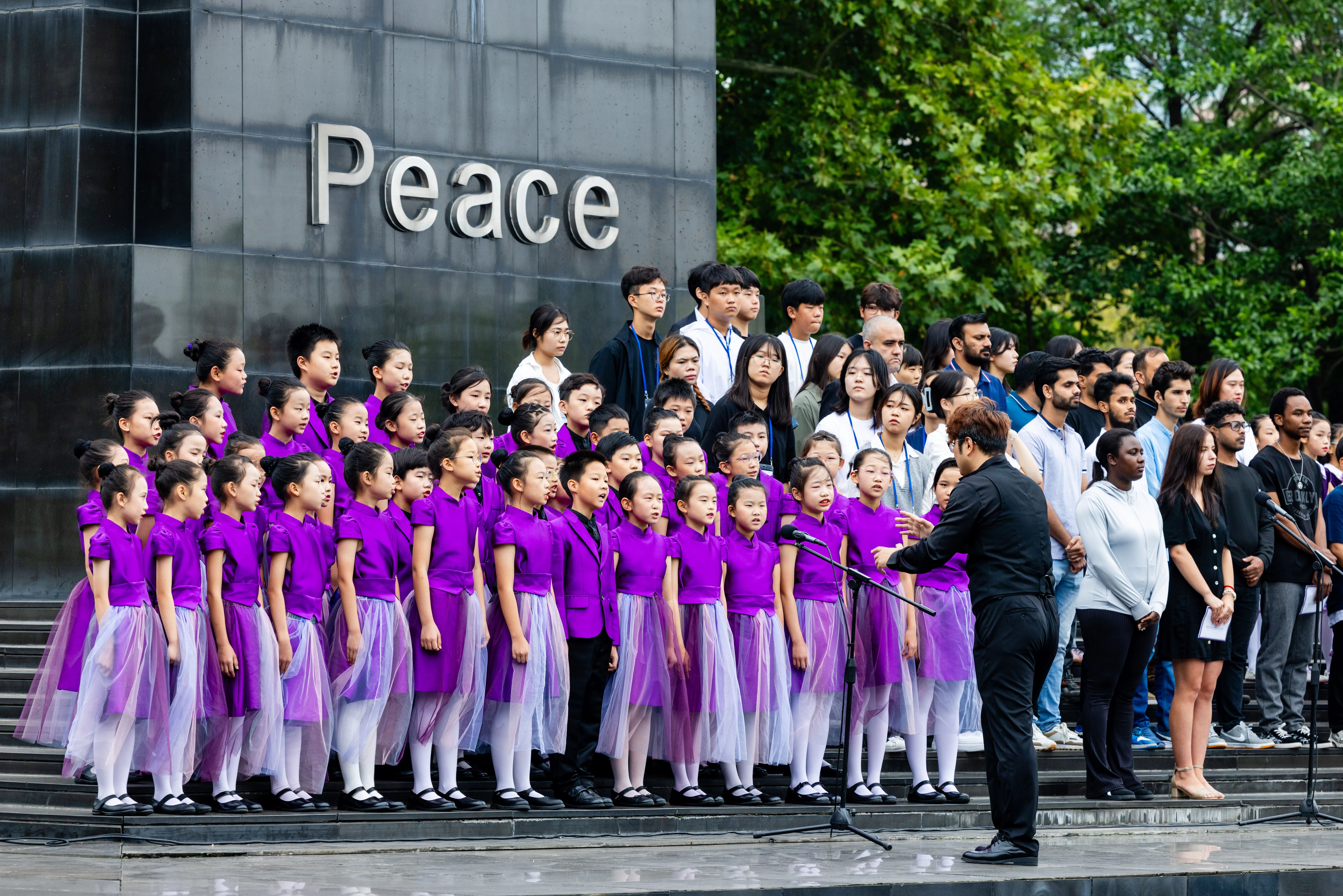
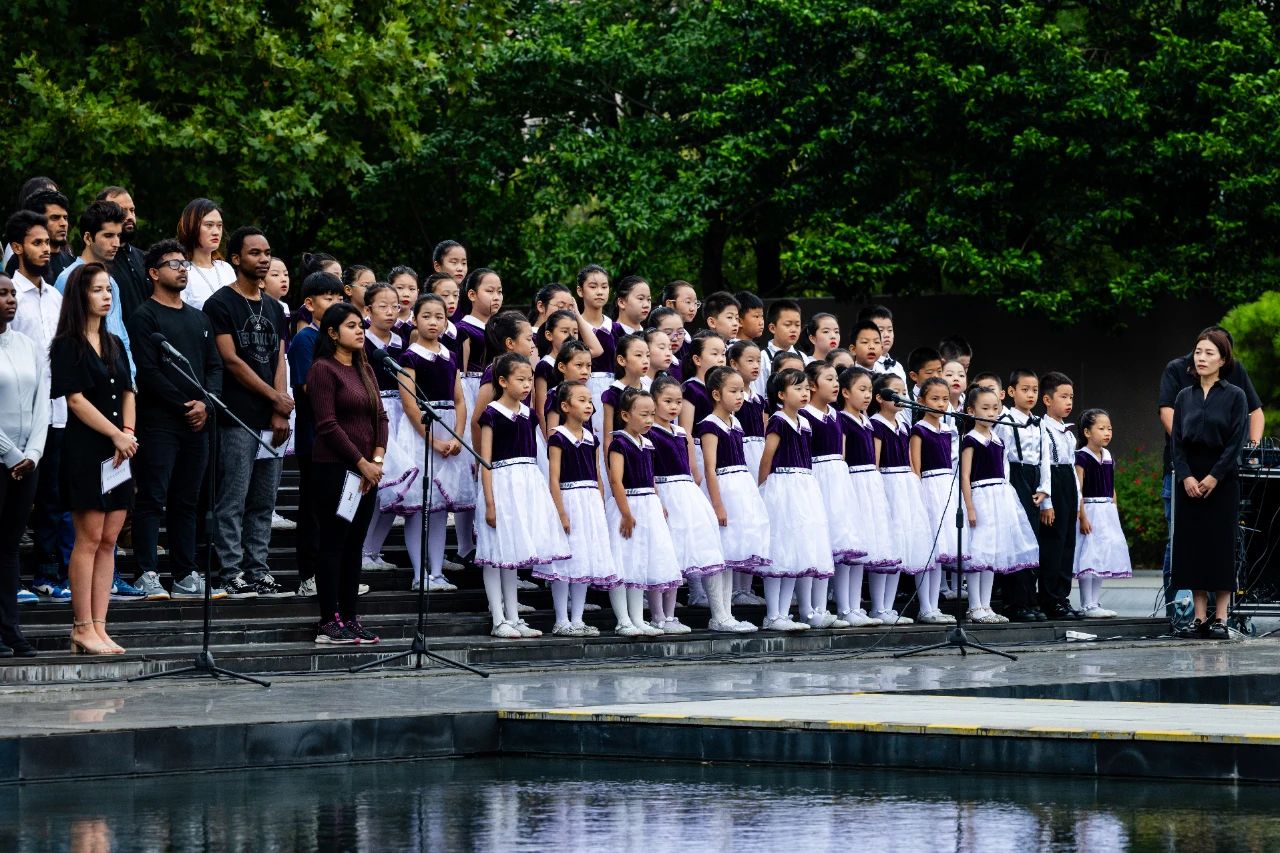
Accompanied by the melodious and youthful singing, everyone's attention was attracted by a group of foreign youths. International students from major universities in Nanjing performed the song ‘Mercy’ on the spot, which was written by a Canadian girl - Megan Brady. Megan's great-grandfather was Richard Brady, a surgeon at Nanjing Drum Tower Hospital in those days, who returned to Nanjing Drum Tower Hospital in February 1938, against all odds, to treat refugees. Megan was deeply touched by her great-grandfather's story and wrote the song ‘Mercy’. Through this song, she hopes that the young generation around the world will ‘feel the same’ about the history of the Nanjing Massacre.
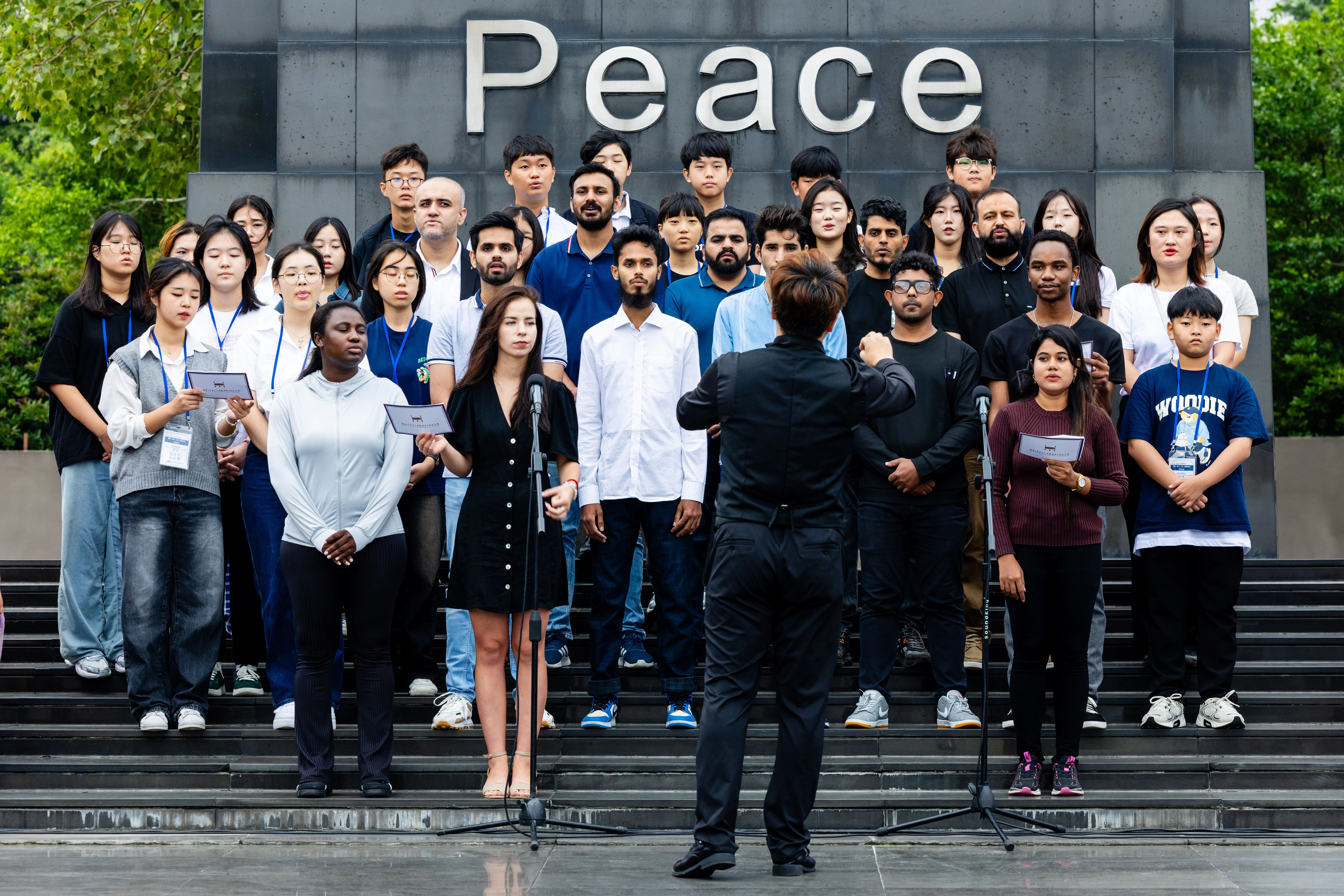
When this group of foreign youths sang: ‘Love douse the fires, peace come with the rain......’, the song went straight to the heart. Rema (Chinese name: Zhao Meijia), an international student from Bangladesh who is currently studying medicine at Southeast University, said, "The story behind the song is very touching to me, and every melody and lyrics touched my heart deeply."
Sowing Zijin grass seeds and making a wish for peace
The heat of summer has slowly faded away, and the air is now filled with the scent of early autumn. It is now the best time to sow the seeds of Zijin grass, the ‘flower of peace’. Staff and participants gathered to the seeding field in the Zijin grass garden to sow the seeds of Zijin grass, a symbol of peace and indomitability.
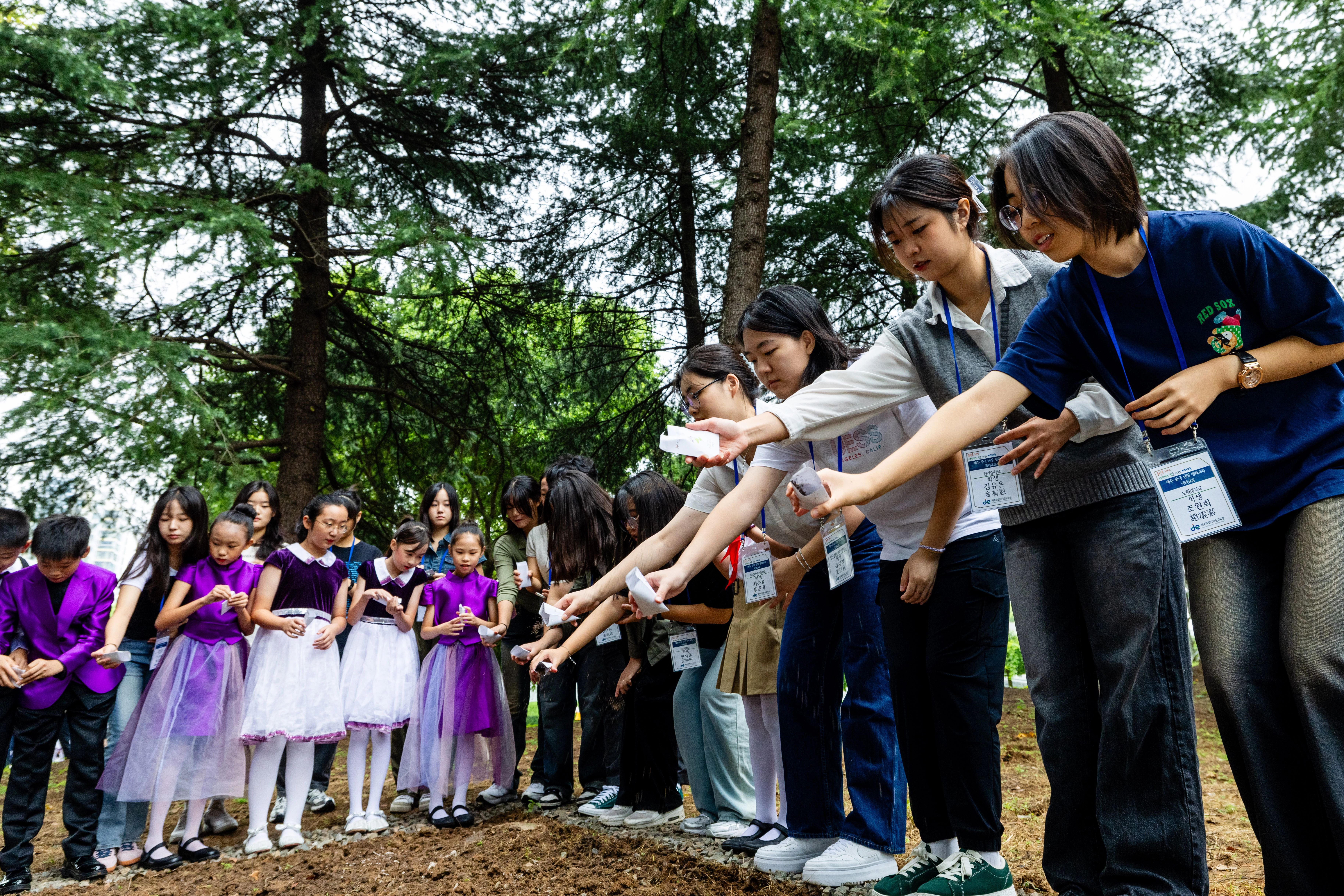
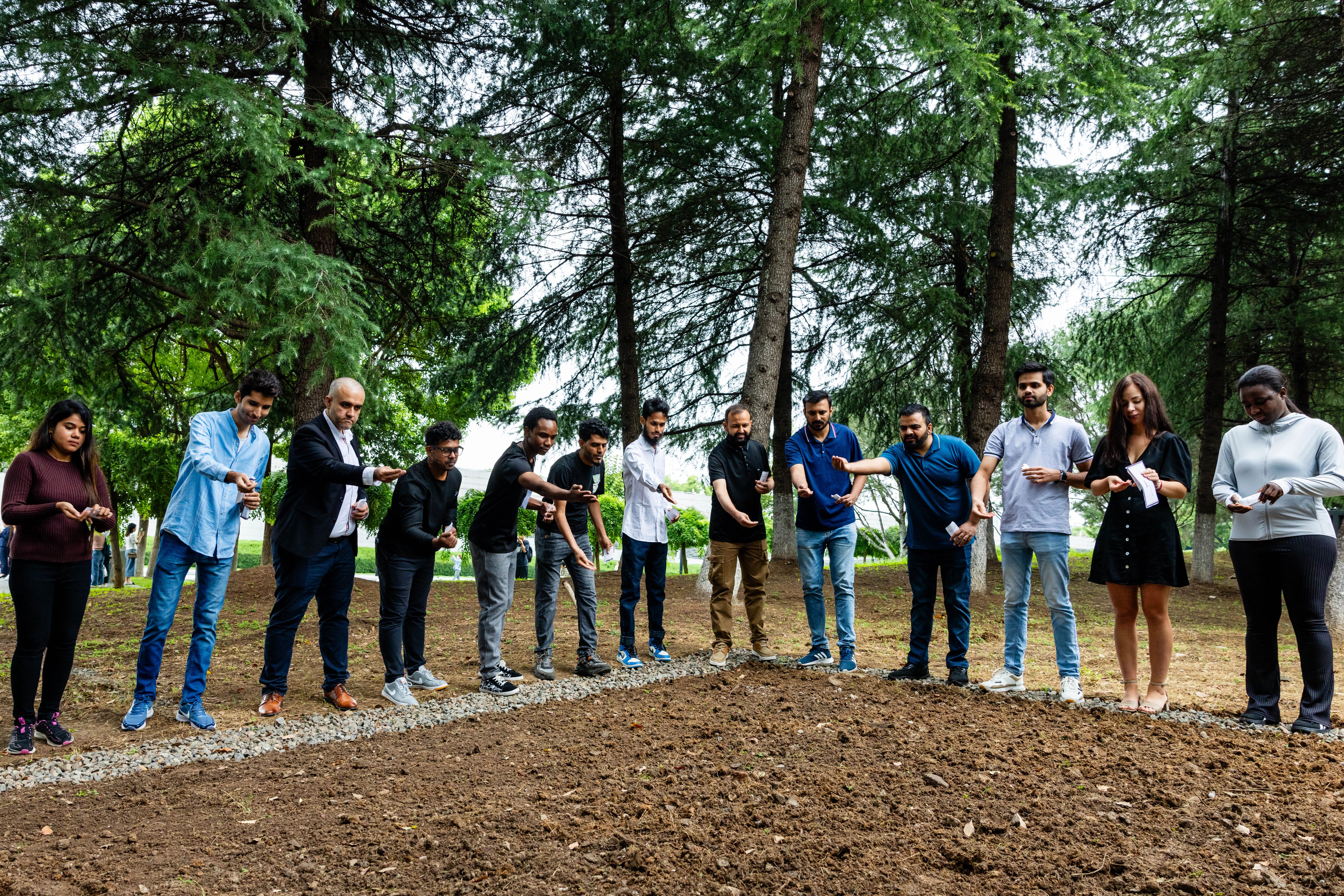
"During the Nanjing Massacre, there were many ordinary people who suffered from the atrocities of the invaders, which was very heartbreaking.", Jiang Caili, a high school student from South Korea, said, "Today I learned about the story of Zijin grass, the ‘flower of peace’, and I find it very meaningful to be able to sow its seeds with my own hands. I hope that when the Zijin grass blooms in March next year, people will be able to see the flowers and be reminded of the history behind them."
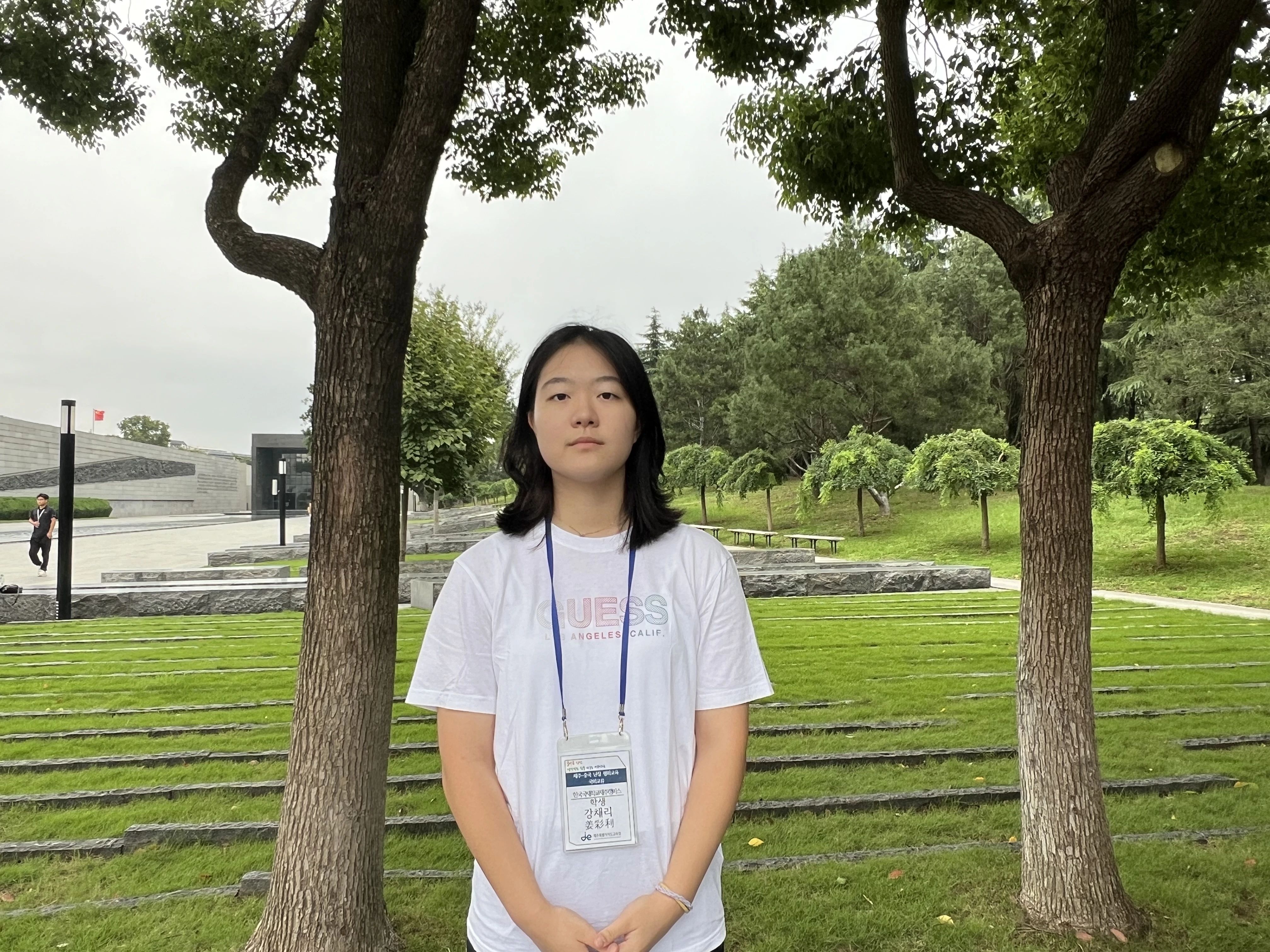
Reciting with love to promote the concept of peace
Today, international students also entered the exhibition hall to ‘touch’ the history of the Nanjing Massacre up close.
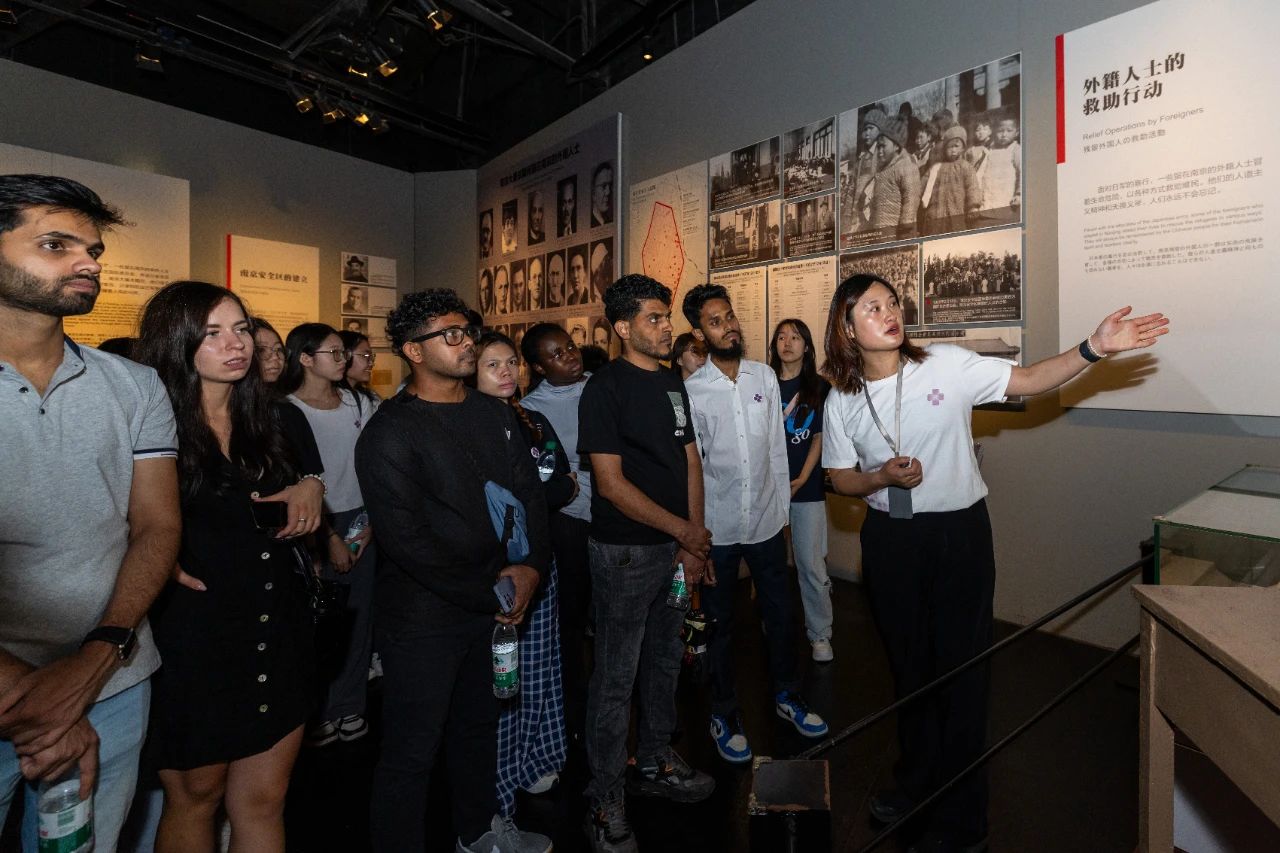
In the ‘humanitarian aid’ section of the exhibition, Samee (Chinese name: Saimi) from Sri Lanka was reading selections from Rabe's Diary to the visitor in front of the statue of Rabe. He said: "I have learned about the stories of Mr. Rabe and many other international friends who stayed in Nanjing and thanked them for their assistance to the refugees there. I hope to pass on this humanitarian spirit myself in the future."
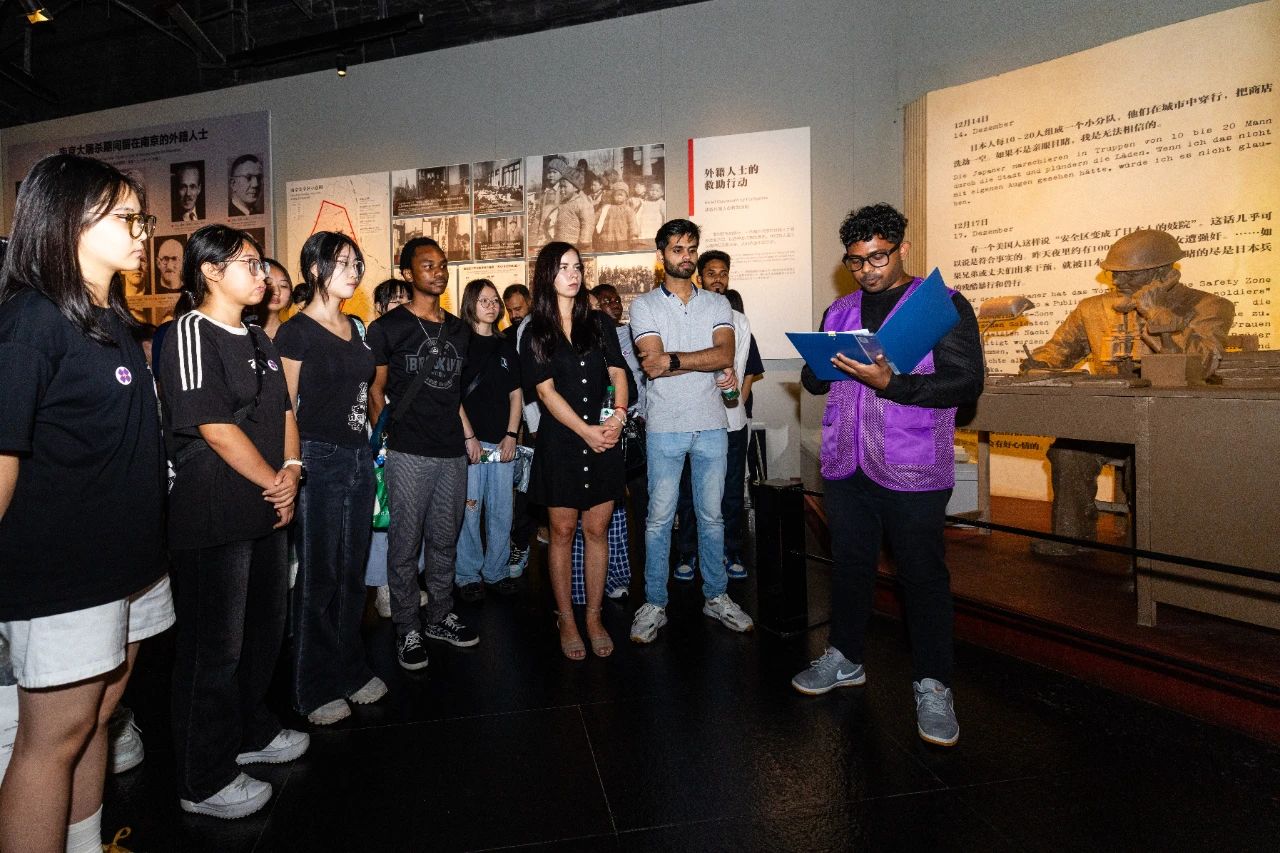
"During the Nanjing Massacre by the invading Japanese army, Minnie Vautrin stayed at the Ginling College, sheltered and protected more than 10,000 women and children refugees ......" In front of the statue of Minnie Vautrin, international volunteer Nastassia Makatun (Chinese name: Nasijia), an international volunteer, was reading the selection from Vautrin's Diary. Nasijia, originally from Belarus, is an international student at Southeast University and has been in China for six months. She said, "China is very beautiful, and all the students around me are very friendly, I like it very much here. Today I learned about the vicissitudes of Nanjing's past history, and now it is a peaceful and beautiful city that brings us hope."
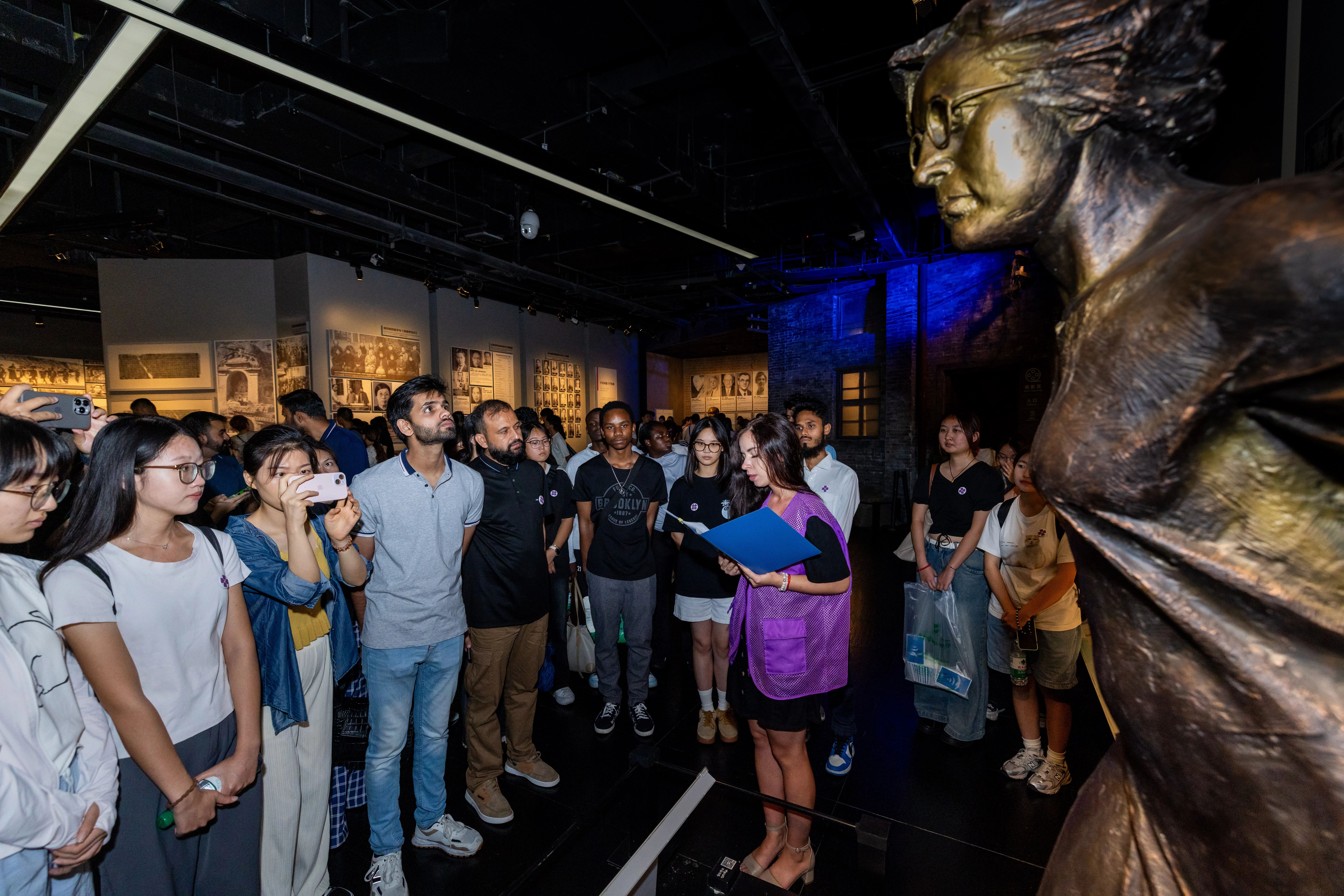
Postcards as a medium to convey the wish for peace
At the end hall of the exhibition hall, a spectacular ‘Peace Wall’ stands, engraved with testimonials of the visit and messages of peace from Chinese and foreign visitors. International volunteers gathered in front of the meaningful ‘Peace Wall’ to distribute peace-themed postcards to the visitors present and invite them to write their wishes for peace.
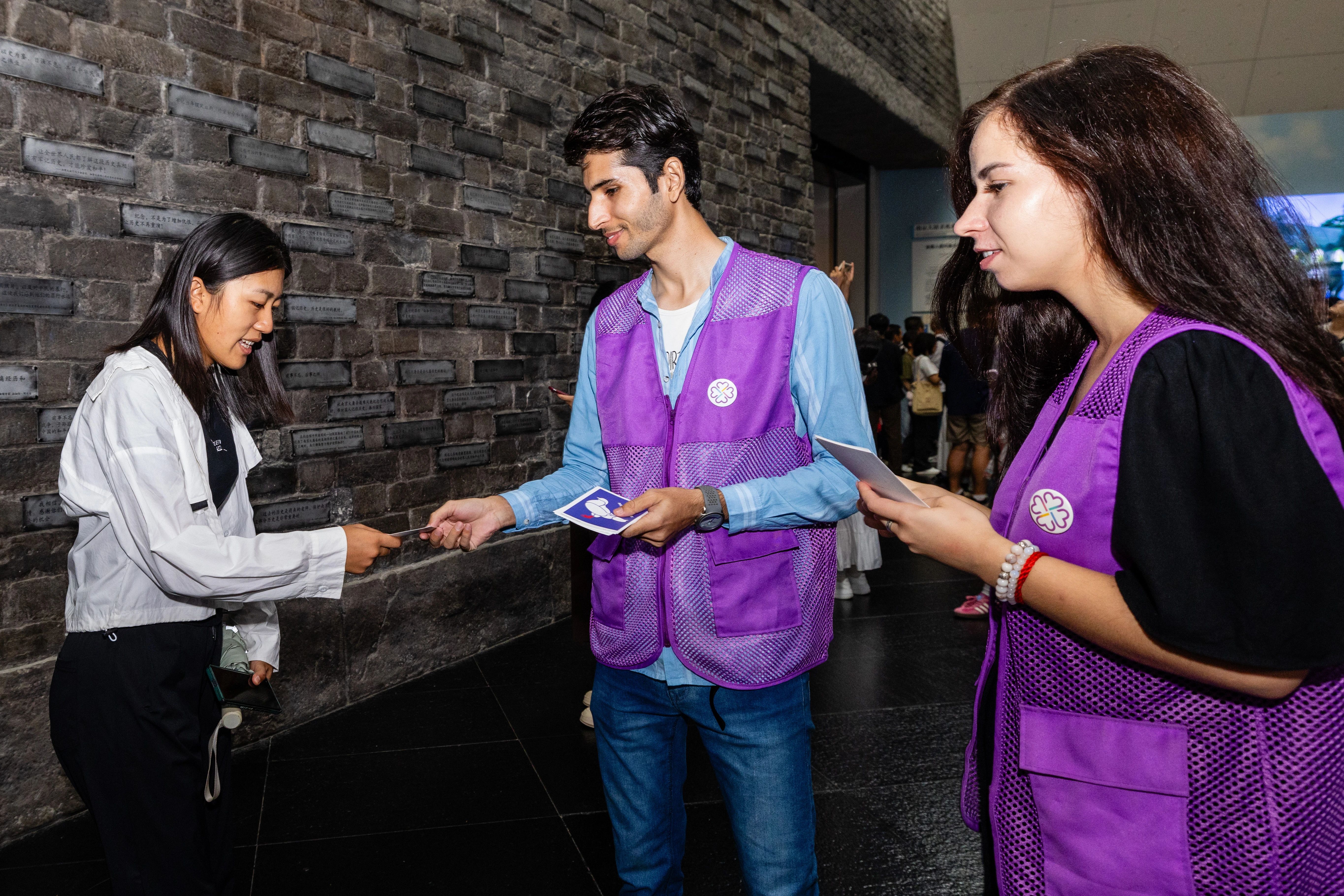
Xuan Liyang, a visitor from Yiwu, Zhejiang Province, received a postcard on the theme of peace and love, on the back of which she solemnly wrote the words ‘Remember History, Cherish Peace’, saying, "The peace I have in mind is that people can respect each other, get along with each other, and work together to create a better world. Today, through reviewing the history of the Nanjing Massacre in the exhibition hall, I learned the importance of peace, and this is a constant reminder that we have to advocate peace and pass it on."

